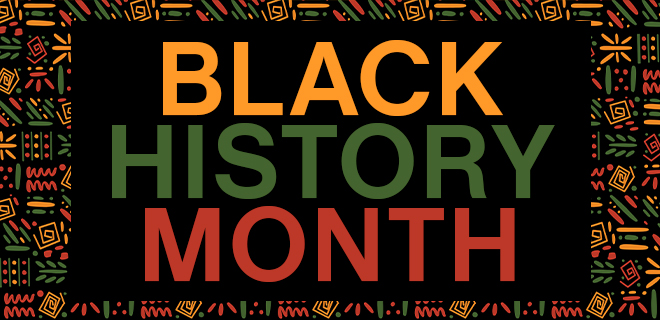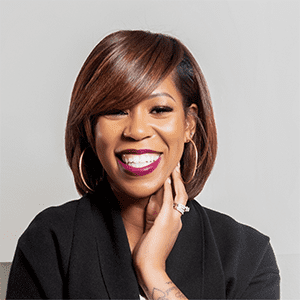
To say she is a star in her own right would be an understatement. CEO by day, mommy and singer by day and night, Lashawda Goffin takes pride in being inclusive, not exclusive, with a people-first mentality.
Goffin grew up singing in a church choir with notable gospel musician Hezekiah Walker, an experience that would build many skills — like confidence, concentration, and collaboration — to help her succeed later in life.
A graduate of Temple University and a woman with a very well-rounded ad tech experience, Goffin shares her ad tech career and journey from beginning to end.
Building a Career in Ad Tech
Yakira Young: For those who don’t know, who is Lashawnda, and how did you land your career in ad tech?
Lashawnda Goffin: It was a combination of chance and opportunity.
While I aspired to be an entertainer, attending college was important to prepare me for the working world. I had a job but wasn’t happy in the role, and a mentor who was an account executive at one of the local stations in New York connected me with someone who would become my boss.
They were looking for an assistant, and I felt the salary was too low. But, I received some sound advice – take the job and build it a secondary career while still pursuing my music career. I followed that advice which set me on a trajectory working in traditional media, then working digital, and eventually moving on to publishing.
Due to a reorganization, my entire department was dissolved, despite the fact that we were exceeding revenue goals month over month. During the reorganization process, I asked myself, “What in the world am I going to do now?” It was the first time that, instead of just applying for a role, I evaluated the culmination of my career. I spent eight years in local broadcast, two years as a digital buyer, specifically around programmatic, and then moving to the publisher side. I didn’t want to take on the same role again, so I applied to tech companies where I could really pull from my previous roles yet gain new experience in a different role.
Initially, the opportunity was geared towards traditional sales, but after subsequent conversations with Mark Walker, our co-founder of Direct Digital Holdings, we created a leadership role at Colossus SSP that allowed me to deliver on the strategic objectives to rebuild the company from the ground up. As the role has grown, it has also allowed me to evolve my career by drawing upon my experiences across strategy, business development, and sales.
The Path From Broadcast Sales to SSP CEO
YY: Reminds me of when I got laid off while I was out for the day for my daughter’s second birthday. The digital media space can be cold, but besides that, what experiences in your background prepared you to be a CEO?
LG: A cultural upbringing always transfers to your professional and provides you with insights on how to navigate different personalities and ethnicities. I’ve been fortunate enough to have been managed by a diverse mix of bosses. It was extremely helpful for me to see how they engaged with other individuals in different settings. I gained knowledge when interacting with my team and our clients in my current role.
My experience in different sectors has also prepared me because each has its own set of guiding principles. Local broadcast is very traditional. There’s not a lot of innovation. By contrast, the digital world moves rapidly and is constantly changing. Then compare those to publishing, where you can be expendable despite your best successes. Upon reflection, now that I’m in my current role, I realize what it was. It was strategy and a little execution, but also about the people. And I see the people first.
I’d describe it as having multiple kids. You can’t parent each child the same. There’s no blanket process, no blanket treatment, and no template for dealing with all of them. I’m meeting everybody where they are.
Mastering the Work/Life Shuffle
YY: People expect that mothers would not be good in the C suite due to family obligations. How do you feel about that, and how do you manage your work/life balance?
LG: I’ve gotten to a place where I can say no or yes without guilt. I’ve worked hard and built a solid career with a good track record. But, when I first had my kids, there was that mommy guilt of leaving them. But I have to work.
There’s that guilt when my kid is sick, I need to be home, but if I miss a meeting, will I be replaced? In most households, the moms are the go-to. We bear the brunt of being the hands-on parent. But I’m secure enough in my ability to parent and at the same time do this job that I don’t feel like either one is threatened if I can’t physically be there.
I’m committed to my daughter and will always be there for her because everything I do is for her. I won’t let anything get in the way of that. It took one comment when she asked, “Mommy, will work make you miss any of my recitals or competitions?” And I responded, “Absolutely not.”
Diversity Is Inclusive
YY: I feel you on that because I didn’t know how to remove the guilt in my twenties. But in my thirties, there is no guilt. And I’m happy I learned that because growing up as a millennial, we were made to feel guilty about many things. And then GenZ is so different.
So as a black woman in this industry, what efforts do you make to push diversity?
LG: I’m inclusive, not exclusive. I’m not just looking for Black people but I’m conscious of ensuring they’re included. We have a diverse team at Colossus SSP, but the ad tech industry needs to do better. I knew nothing about Ad Tech in college but found my way into it. I intentionally expose folks that are not even in their career yet.
Since I’m based in Atlanta, I intentionally reach out to Historically Black Colleges and Universities (HBCUs) — Spellman, Clark, Atlanta, and Morehouse — career services and recruiting offices. We want to offer internships as they can expose students to the industry. People see TV ads and boxes on the internet getting filled, but they don’t know what’s behind it.
I went to those schools because working at an SSP is not something someone would say they want to do when they grow up. It’s not what they’re studying. I want to ensure that the representation is there once they enter the field.
YY: Now, let’s talk about what’s happening with brands not investing in minority-owned media outlets. While the industry has identified the problem, brands must act more toward getting things right. Do you see any hope for an increase in ad spend geared toward minority-owned media this year and in the future?
LG: Colossus was formed before the unfortunate incident where social unrest was triggered. That was the pivotal moment when brands started to think of ways to give back to the community. DDH just released a white paper, Dollars & DEI: Multicultural Consumers’ Insights on Brands’ Media Buying and Marketing Practice, and it speaks about advertisers needing to put their money where their mouth is and how consumers in these audiences react and choose to support brands that give back to their community.
What we’re doing is looking to uncover those folks. We are being aggressive, knocking on those doors, and saying, “Hey, we saw this is what you said. What are you doing about it?” We have a ton of content creators and publishers who have content that resonates with their loyal audiences. You might be missing this market because of the outdated strategies you have in mind that have inadvertently excluded these audiences.
DEI means something different to everybody. Sometimes a brand wants to run on a publisher or property owned by a certain group or reach a particular audience. I always get on these calls with brands and ask, “What does DEI mean to you? Is it about checking the box? Is this more about ensuring one black person on your website can say there’s someone like them in the C-suite?” At the end of the day, DEI makes good sense.
What’s Next For Colossus SSP?
YY: This past October, Colossus partnered with CafeMedia to connect advertisers to the largest network of minority women and veteran-owned sites. How is that been going?
LG: We work very closely with them to ensure the demand is aligned, connecting them with the appropriate demand and ensuring we optimize the potential at its fullest. So it’s been an amazing journey with them. Just given the diversity that they have within their portfolio, it just matched our ethos. It’s been a great relationship that is still growing.
To read more stories in our Black History Month series, check out:
- 10 Black Ad Tech Professionals Making Waves in Digital Media and Advertising
- Celebrating Black Pioneers in Ad Tech — Charles Cantu, Reset Digital
- Breaking the Glass Ceiling: The Legacy of Louis Jones, Brand Safety Institute
- The Importance of Black Media and Sharing Your Wealth: Cedric J. Rogers, Culture Genesis Inc.
